Top 8 Best Websites to Learn About Buddhism
There are a ton of websites that relate to Buddhism, but not all of them are great resources for learning about Buddhism. It requires many factors to decide if ... read more...a website is a good place to learn about one of the world's major religions, and among the many websites out there, we picked out these 6 of the best websites for you to check out if you want to learn about Buddhism.
-
If you want to look for the earliest texts of Buddhism, SuttaCentral is the right website to view. This is a website dedicated to making early Buddhist texts available online in multiple languages. It was founded in 2007 by Ven. Sujato Bhikkhu, a Theravadin monk and scholar, with the aim of creating a modern, user-friendly platform for accessing these important texts.
SuttaCentral hosts a vast collection of early Buddhist texts from various traditions, including the original texts in the original languages, including The Pali canon (or Tipiṭaka) of the Theravāda school: The Mahāsaṅgīti edition of the Sixth Council recension; The early Āgama and Vinaya texts from the Taishō edition of the Chinese canon; and a much smaller range of early texts from the Tibetan Kangyur. These texts have also been translated into multiple languages by a team of scholars and are freely available on the website.
In addition to the texts themselves, the website provides a range of features to help users navigate and understand them. These include searchable databases, translations with contextual notes, audio recordings of readings, and links to related texts and resources.
One of the unique features of SuttaCentral is its use of advanced technology to create interactive tools for exploring texts. For example, users can view parallel versions of a text in different languages side-by-side, compare different translations of the same passage, or search for specific words or concepts across multiple texts.
Website: https://suttacentral.net/
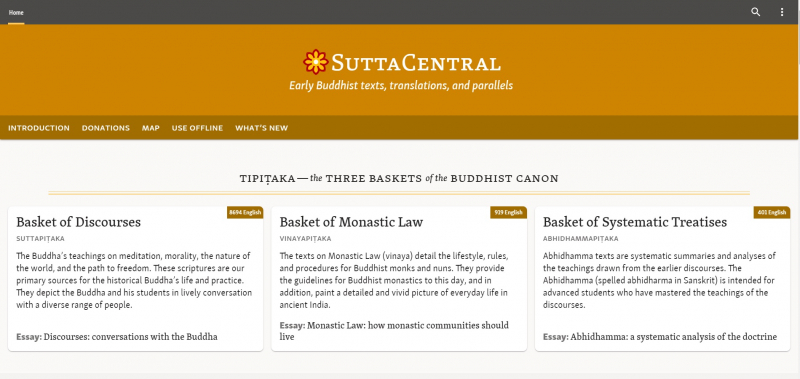
Screenshot of https://suttacentral.net/ 
Photo by Pixabay: https://www.pexels.com/photo/architecture-asia-asian-blur-236148/ -
FGSITC is the official website of the Fo Guang Shan International Translation Center (FGSITC), a non-profit organization based in Taiwan that specializes in translating Buddhist texts and teachings into different languages. Similar to SuttaCentral, this is also a great resource for finding Buddhism-related documents.
The Fo Guang Shan International Translation Center was founded by Venerable Master Hsing Yun, a renowned Buddhist master, and author, in 1991 with the aim of making Buddhist teachings more accessible to people around the world. Since then, the center has translated a wide range of texts from various Buddhist traditions into over 20 languages.
On the website, visitors can find a wide range of resources related to Buddhism, including sutras, commentaries, and other works by Buddhist masters. These resources are available in multiple languages, and as the site was created with the intention to share knowledge, all of them can be downloaded for free.
Besides its translation work, FGSITC also offers training and education programs for translators and interpreters, as well as publishing and printing services for Buddhist organizations and temples. With that being said, FGSITC is truly a valuable resource for anyone interested in studying or practicing Buddhism, providing access to a wealth of translated texts and resources for learning about this ancient tradition.
Website: https://www.fgsitc.org/
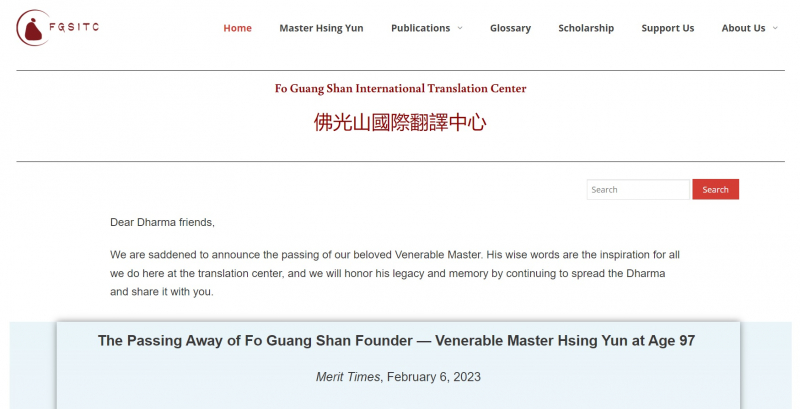
Screenshot of https://www.fgsitc.org/ 
Photo by Pixabay: https://www.pexels.com/photo/aged-ancient-asian-buddhism-45178/ -
If you want to learn bout Buddhism from the art and culture aspect, check out Himalayan Art. This website was founded in 1997 by Jeff Watt, a scholar, and collector of Himalayan art, and has since become one of the most comprehensive online resources for this subject.
Himalayan Art currently features over 1500 artworks from Tibet, Nepal, Bhutan, India, China, and Mongolia from various periods and traditions, including thangkas, sculptures, paintings, and textiles. These images are accompanied by detailed descriptions and contextual information, as well as links to related works and artists. Therefore, by going through these arts, you'll also learn a lot about the history and cultural aspects of Buddhism.
Moreover, the site also provides a range of educational resources to help visitors learn more about Himalayan art and culture. These include articles, videos, and audio recordings on various topics related to Himalayan art and Buddhism, as well as a glossary of key terms and concepts.
Additionally, Himalayan Art uses advanced technology to create interactive tools for exploring art. For example, users can zoom in on high-resolution images to see fine details, compare different versions of the same image side-by-side, or create custom collections of images to study and share.
Website: https://www.himalayanart.org/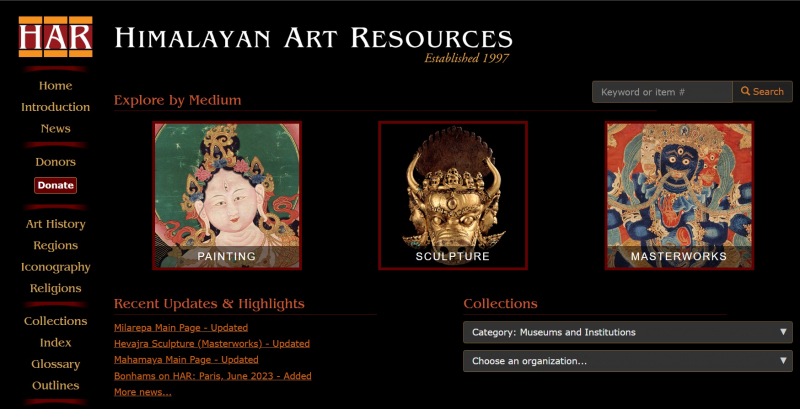
Screenshot of https://www.himalayanart.org/ 
Photo by Pixabay: https://www.pexels.com/photo/gold-colored-buddhas-dome-building-50541/ -
Journal of Global Buddhism is a website dedicated to the academic study of Buddhism from a global perspective. The website was founded in 2008 by a group of scholars and has since become a leading platform for research and discussion on various aspects of Buddhism. It is also known as a scholarly academic journal employing a blind peer review evaluation process and is innovative in adopting a totally electronic mode of publication.
The website features a range of resources related to Buddhism, including articles, reviews, conference announcements, and job postings. These resources are organized into different categories, such as history, philosophy, and art, making it easy for visitors to find information on specific topics.
Moreover, the Journal of Global Buddhism also hosts a number of online discussion forums where scholars and practitioners can exchange ideas and perspectives on various aspects of Buddhism. These forums are moderated by experts in the field and provide a lively and engaging space for dialogue and debate.
What sets this site aside from the other sites about Buddhism is its focus on the global dimensions of Buddhism, with a particular emphasis on the way in which Buddhism has adapted to different cultural contexts around the world. This approach allows for a more comprehensive and nuanced understanding of Buddhism as a living tradition that continues to evolve and adapt over time.
Website: https://www.globalbuddhism.org/
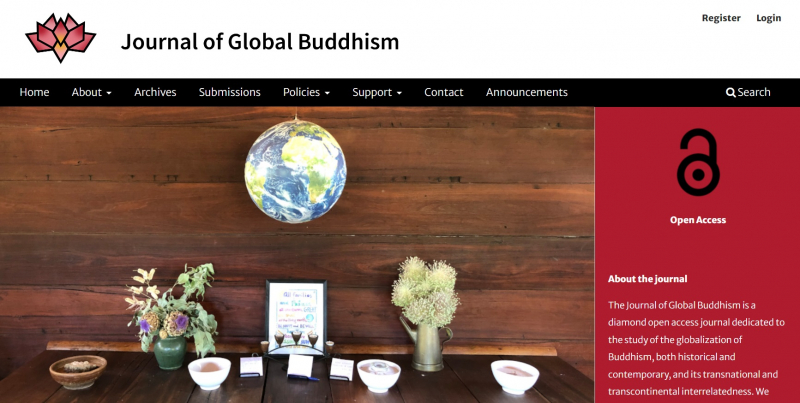
Screenshot of https://www.globalbuddhism.org/ 
Photo by Pixabay: https://www.pexels.com/photo/two-monk-in-orange-robe-walking-down-the-concrete-stairs-161183/ -
On your journey to learn about Buddhism, you'll likely see a lot of "Buddha Quotes," but are they really authentic and trustworthy? Sadly, a lot of those quotes you see were modified from the original meaning, or just plain... fake. Luckily, you can check out Fake Buddha Quotes for a wealth of information and tools for promoting accuracy and authenticity in the use of Buddhist quotes.
Fake Buddha Quotes was founded in 2010 by Bodhipaksa, a Buddhist author and teacher, with the aim of promoting accuracy and authenticity in the use of Buddhist quotes. This website is dedicated to exposing and correcting quotes that are falsely attributed to the Buddha or misrepresent Buddhist teachings.
The website features a collection of over 500 quotes that have been wrongly attributed to the Buddha or taken out of context. For each quote, the website provides a detailed analysis of its origins and meaning, as well as evidence to support its authenticity or debunk its falsehood. The site also provides a range of resources to help visitors learn more about Buddhism and the proper use of Buddhist quotes.Fake Buddha Quotes especially focuses on critical thinking and intellectual honesty in the study and practice of Buddhism. By exposing and correcting fake Buddha quotes, the website promotes a deeper understanding and appreciation of the authentic teachings of the Buddha and their relevance to contemporary life.
Website: https://fakebuddhaquotes.com/
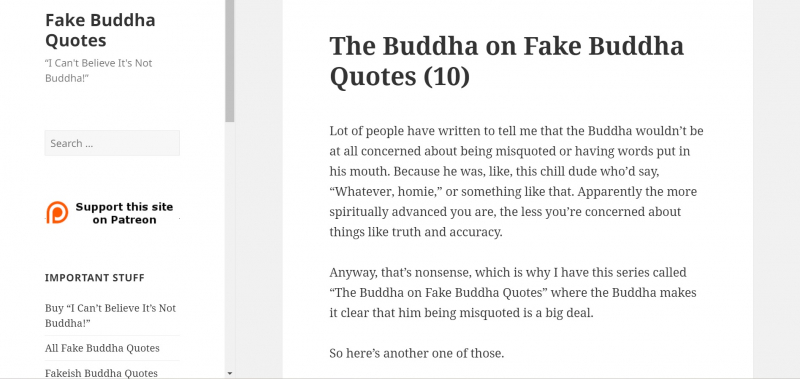
Screenshot of https://fakebuddhaquotes.com/ 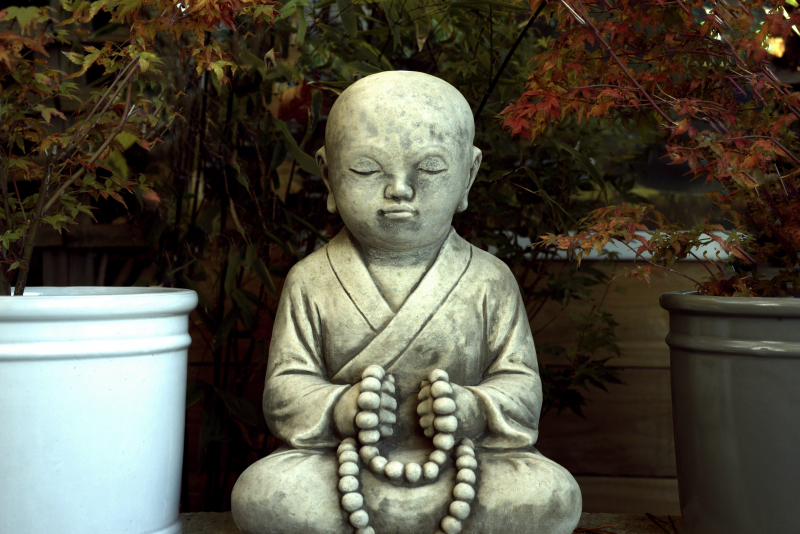
Photo by Mike Bird: https://www.pexels.com/photo/gray-monk-statue-in-between-plant-pots-204649/ -
The Buddhist Society is an organization founded in 1924, based in London, UK, and aims to promote the teachings of Buddhism and their practical applications in daily life. Its website provides information about the organization's history, its mission, and its current activities, including classes, workshops, and retreats. The site also offers resources for those who are interested in learning more about Buddhism, making it a great stop for you to learn more about this religion.
The Buddhist Society's courses are available for everyone with any level of knowledge about Buddhism. The courses on the site start with the popular Introduction to Basic Buddhism ("Introducing Abhidhamma" and "Introducing Buddhism"). From there, interested members can learn more about Buddhism with other courses like "Introducing Sanskrit with James Whelan", "Sutra&Tantra: Gateway to the Vajrayana", and then end the courses with "The First Turning of the Wheel Course" and "The Great Way Course". If you have time, consider taking the "Buddhist Society Summer School" or the "Correspondence Course."
Though the courses are all free, consider making a donation to help the site in the furtherance of its work, so more people can get access to such great resources for learning about Buddhism. You can also become a member of The Buddhist Society and get a subscription to The Middle Way and access to their events.
Website: https://www.thebuddhistsociety.org/
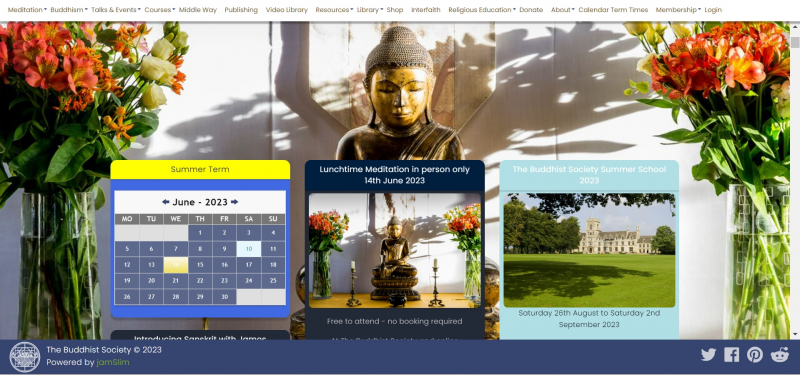
Screenshot of https://www.thebuddhistsociety.org/ 
Photo by THÁI NHÀN: https://www.pexels.com/photo/monk-holding-prayer-beads-across-mountain-2730217/ -
The Open Buddhist University was created with a mission to provide a free, English-language curriculum in Buddhist Studies from the perspective of “Early Buddhism.” This online learning platform has been run by Khemarato Bhikkhu, an American monk in the Thai Tradition, and is based on Khemarato Bhikkhu’s personal library on Google Drive which he shared publicly after his ordination in Thailand in 2019.
The website currently offers 16 courses on the fundamentals of Buddhism, including Buddhism 101, The Practice of Buddhism, Buddhism as a Religion, The Buddha's Words, An Introduction to Buddhist Philosophy, Buddhist Ethics, The Buddha, Imagery in the Early Buddhist Texts, The Majjhima Nikāya, The Aṅguttara Nikāya, Tranquility and Insight, Nibbāna: The Goal of Buddhist Practice, Nibbāna: The Mind Stilled, The Pāli Language: Level 1&2, and Chinese Buddhist Writing. Although none of the courses offer degrees or certificates, they are still great resources for you to learn more about Buddhism online.
The Open Buddhist University also offers helpful external courses for members who have finished the site's course, such as Shin Buddhism in Modern Culture (A short, interactive overview of Jodo Shinshu, from Shinran's life to Japanese Buddhism in the modern United States), The Arahant and the Four Noble Truths (The course about the Venerable Arahants at the time of the Buddha), and many more.
Especially, The Open Buddhist University partners with SuttaCentral to let their students connect and discuss through a Discuss and Discover forum that can be accessed from both websites. Moreover, If you have any feedback or questions, connect to Khemarato Bhikkhu himself at the email at the bottom of the page.
Website: https://buddhistuniversity.net/
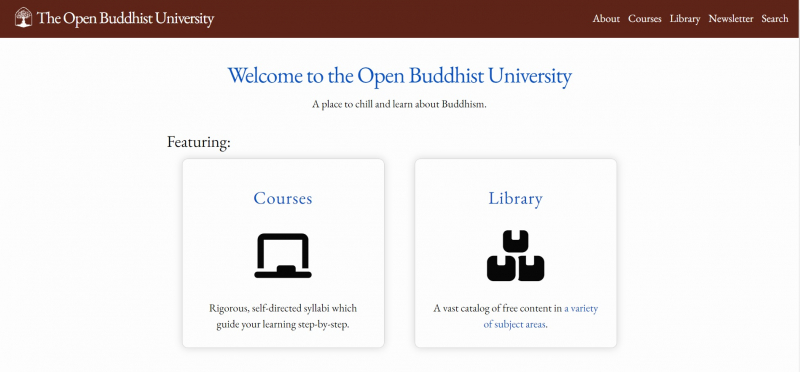
Screenshot of https://buddhistuniversity.net/ 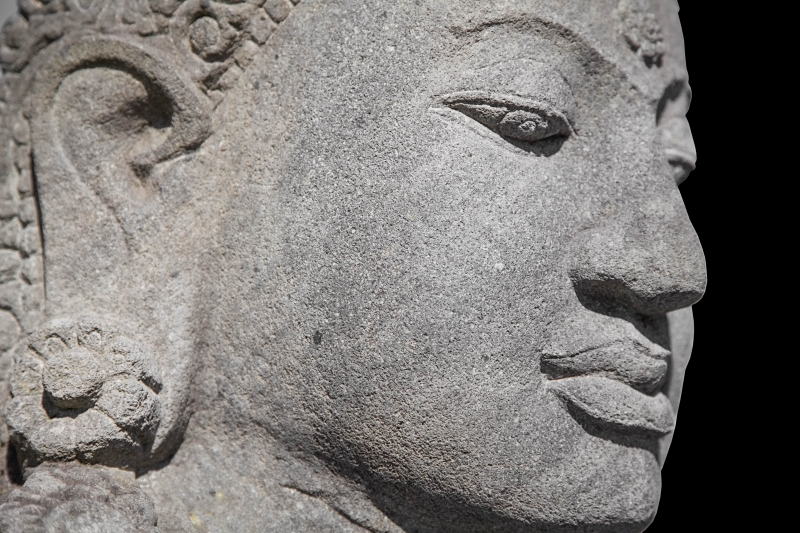
Photo by Eckhard Pemsl: https://www.pexels.com/photo/buddha-statue-793069/ -
BuddhaNet is the place to start if you are looking for a trustworthy website to begin your Buddhism learning journey. This website has been in operation since 1996, and until then has been a great place dedicated to sharing Buddhist teachings, resources, and information related to Buddhism.
BuddhaNet is the official website of the BuddaNet Organization, a not-for-profit organization affiliated with the Buddha Dharma Education Association Inc, which was first established as a Vipassana Meditation Centre in 1992 in Sydney by an Australian meditation monk Ven. The site aims to facilitate a significant Buddhist presence in the ever-expanding realm of computer communications technology, applying this technology to help make the Buddha's teachings freely available to all.
On the website, you can find a wide range of resources about Buddhism, including articles, eBooks, audio recordings, videos, and an online bookstore. There are also online courses and meditation guides available for those who want to deepen their understanding and practice of Buddhism. Check out their Buddhist Studies page (http://buddhanet.net/e-learning/basic-guide.htm) to learn more about how you can learn about Buddhism on the site.
In addition to these resources, BuddhaNet also provides a directory of Buddhist organizations, temples, and centers around the world, making it easy for visitors to find local communities to connect with.
Website: http://www.buddhanet.net/
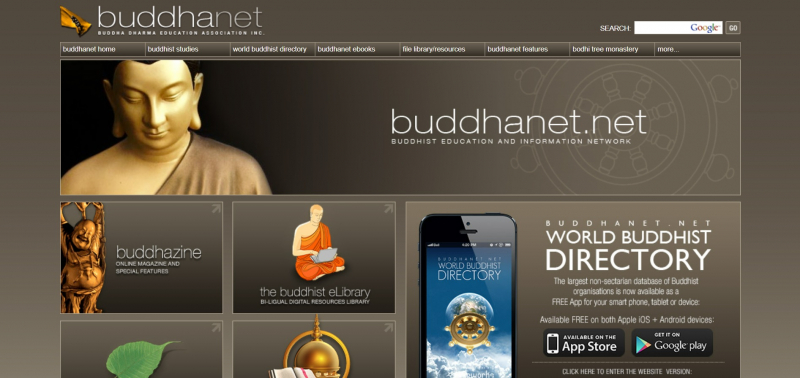
Screenshot of http://www.buddhanet.net/ 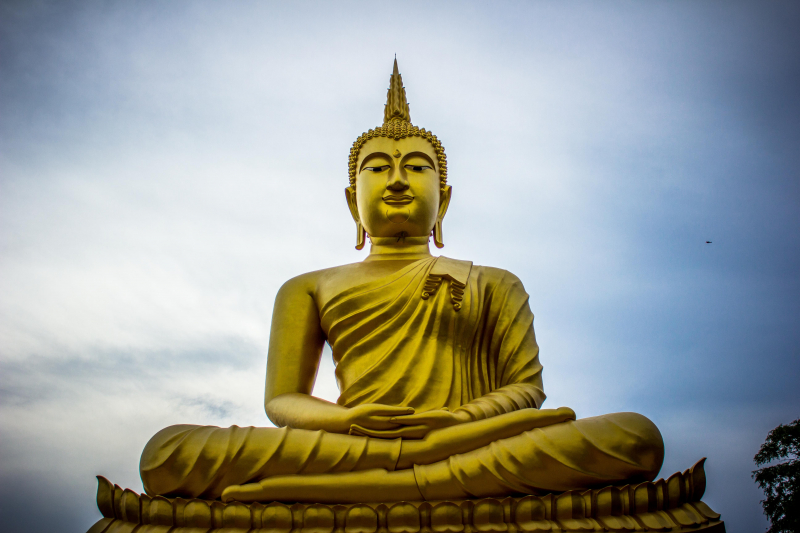
Photo by Suraphat Nuea-on: https://www.pexels.com/photo/photo-of-golden-gautama-buddha-937465/




























